To his father, a posting to the United Nations in New York was just another rung on a career ladder. But for Vlado Lackovič, it was something he knew would change his life.
At 15, he suddenly found himself swapping his Slovak school for an American high school. Then three years later the Nitra native made a choice – when his parents left America he decided to stay in the Big Apple to study business marketing and entrepreneurship at university.
Time passed and his initial plan to return home after college was shelved as his desire to be a success in America grew stronger.
Today, almost two decades later, and after a successful business marketing career in the USA, Lackovič says it might be time for him to go home to Slovakia.
“I’m working on it,” he says, admitting he has yet to set a specific date for his return.
The 34-year-old says there are still many things that he needs to get done in America: complete a mid-career international affairs programme at The Fletcher School of Law and Diplomacy in Boston, where he lives, fulfil a number of obligations, including atSlovak PRO, a non-profit organisation helping Slovaks in New York, as well as persuading Slovaks living abroad to vote in the parliamentary elections in Slovakia in September.
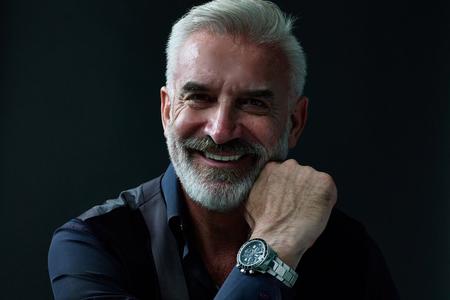
Why Slovaks abroad matter
It is the former of these, his Boston studies, which have actually brought him temporarily to Slovakia.
Lackovič, who has always loved history and international relations, is in Bratislava for two months serving as an intern at the Presidential Palace.
To some, this might seem as a bit of a departure for someone who co-founded and ran a successful marketing firm, Digital Natives Group, for a decade and worked with iconic organisations such as the National Broadcasting Company (NBC), National Football League (NFL), as well as done marketing for the Empire State Building and cooperating with major American publishing houses.
But after ten years in the business, Lackovič was looking for a change.
“It’s not that I stopped enjoying it, but I wanted to move on,” he explains. “So we sold the firm.”
Today, apart from being involved in investment and technology, he organises various events for the ‘Slovak diaspora of professionals’ in New York with his colleagues from Slovak PRO.
He joined the organisation seven years ago, enjoying being able to connect talented Slovak people in New York, and in America, helping them learn new things, and bringing them together as a community.
“It’s an amazing and very important job,” Lackovič notes.
The diaspora, which is made up of entrepreneurs, artists, scientists and other professions, is estimated at around 2,500 people.
The organisation already cooperates with the Slovak Foreign Ministry and its consulate in New York, but Lackovič says that Slovakia should be supporting groups like Slovak PRO, which was set up by Slovak people in New York, in other places, and not just in New York.
“Such cooperation can help Slovakia move forward,” he says, stressing that Slovakia should ensure that successful Slovaks abroad do not lose their links with their homeland.
“There are many of them who could help Slovakia. We cannot lose them.”
He adds that the support of organisations like Slovak PRO could also help Slovaks who have not left their homeland, but who dream of going abroad and being successful.
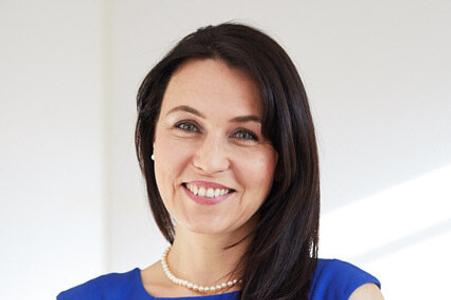
Getting out the vote abroad
Slovak Pro, alongside 40 other non-profit organisations and groups, is also behind the Srdcom Doma (With Heart at Home) campaign. Launched four years ago ahead of the 2020 parliamentary elections, it is working to convince Slovaks abroad that they should vote in the September elections.
“We want them to use the right to vote and to decide on how Slovakia functions and will function in the next four years,” Lackovič, a regular voter from abroad, says. “It’s very important. The more people vote, the better.”
Nearly 3,500 Slovaks voted in the 2006 elections from abroad. In 2020 the number had risen to almost 49,000 and this year, Srdcom Doma hopes it can help get it to double that number.
As of July 27, more than 30,000 Slovaks living abroad had registered to vote in the elections, the Interior Ministry said. Most of them live in the Czech Republic, Great Britain, and Germany. However, the number of Slovaks living abroad is thought to be significantly higher – it is estimated by the Central Register of Insured Persons that up to 300,000 Slovaks have left Slovakia in the past 15 years.
“If a [election] billboard stood at the side of a motorway going to Brno, or Vienna, it could have an effect on some Slovaks,” Lackovič says with a smile.
Slovaks abroad can register until August 9. Their ballots must be delivered to the Interior Ministry by 12:00 on September 29, a day before the elections take place in Slovakia.
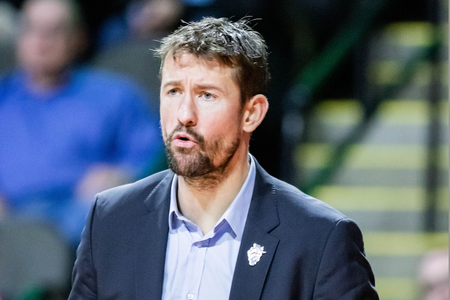
Boosting Slovaks’ confidence
Unlike some Slovaks abroad, Lackovič seems determined to return to Slovakia regardless of who takes power later this year.
“I’m more of an optimist,” he says. “I think that civil society in Slovakia is strong, and even if the results might look unpleasant to some, things will definitely change in the future.”
Polls currently suggest former PM Robert Fico’s Smer party, which lost power at the last elections after a slew of corruption scandals and evidence of mafia links to its members were exposed, is on course for victory.
But, says Lackovič, regardless of who becomes the next prime minister he will always work to help Slovakia grow into a successful and innovative country, and he hopes others will do the same.
“This has always been important for me,” Lackovič maintains. When he used to run his firm in America, he cooperated with talented and skilled people and firms in Slovakia and he says he is already looking forward to helping them even more once he returns to Slovakia, which, he believes, has been struggling to sell what it has to offer.
“Sometimes we cannot appreciate ourselves, what quality people and quality companies we have in Slovakia,” Lackovič says. “It’s as if we’re afraid in Slovakia of being successful and being good and being more open or direct in communicating about our achievements.”
This is something he wants to help remedy in the future.
However, he admits he has another very important reason for returning -family that he wants to spend more time with.
Luckily, his American wife is equally looking forward to the change.
“She really likes Slovakia, especially Bratislava, and is looking forward to living here,” he says.

This article was published with the support of a grant from the Ministry of Foreign and European Affairs of the Slovak Republic. The project idea came from Kristína Sojáková who works for IBM in NYC and co-runs the Slovak Professionals in New York group.


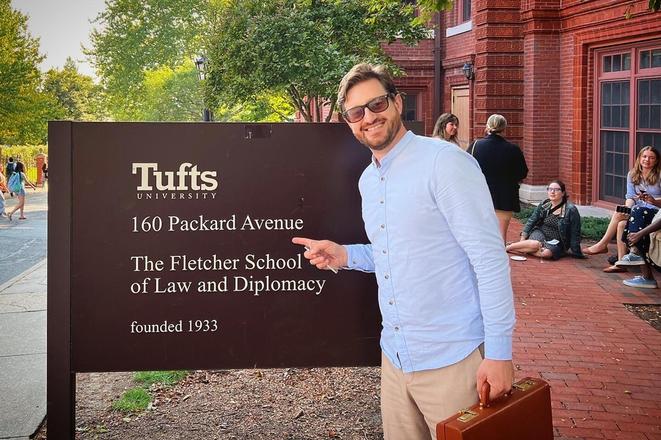 Vlado Lackovič studies international affairs in Boston. (source: Courtesy of V. L.)
Vlado Lackovič studies international affairs in Boston. (source: Courtesy of V. L.)
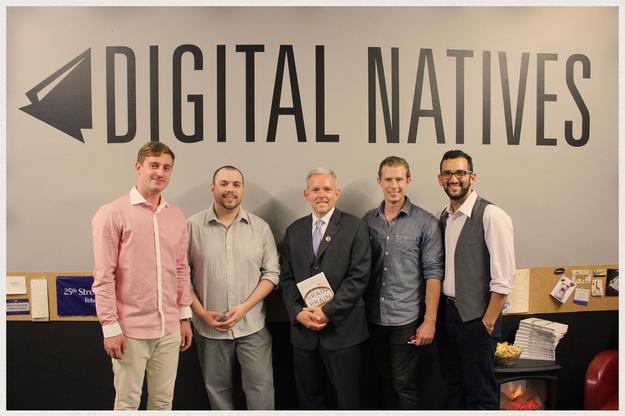 Digital Natives Group's second birthday in 2013. (source: Courtesy of V. L.)
Digital Natives Group's second birthday in 2013. (source: Courtesy of V. L.)
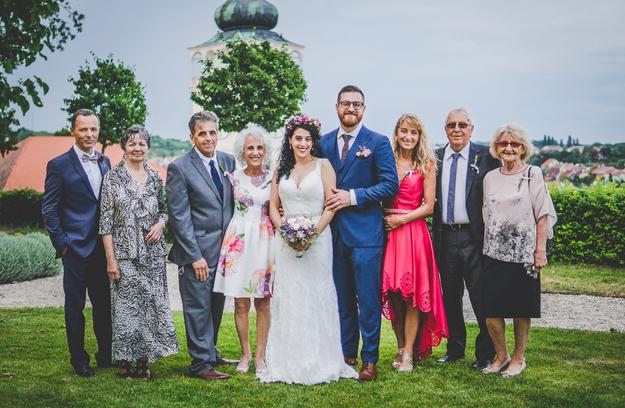 Vlado Lackovič with his wife and family in 2019. (source: Courtesy of V. L.)
Vlado Lackovič with his wife and family in 2019. (source: Courtesy of V. L.)
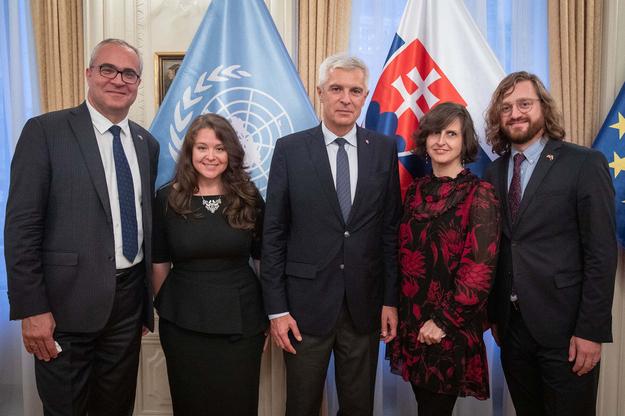 A Slovak PRO event in NYC in 2021. (source: Courtesy of V. L.)
A Slovak PRO event in NYC in 2021. (source: Courtesy of V. L.)